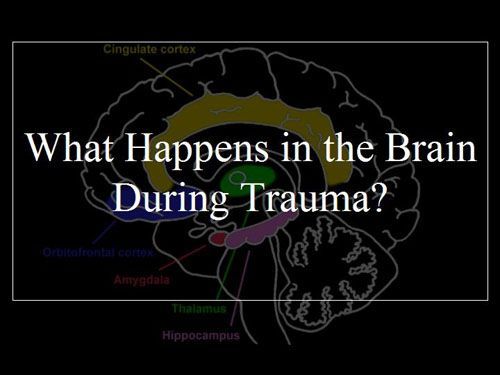Can Strategic Hypnotherapy Lift The Affects Of Trauma?
Did you ever have an accident in the playground during your childhood that left you with a scar that is still visible today? How about an operation in hospital? Could it be that just like having a childhood accident or an operation, going through an emotional & traumatic experience can effectively do the same to our mind? Leave an enduring reminder? And what does hypnotherapy in the Sutherland Shire offer?
Is it possible that things that did or didn’t happen to us (trauma or neglect), profoundly affect our experience of our selves, our relationships, and life later on – even years and decades afterwards?

Trauma Can Leave You Feeling Isolated And Confused. But It’s NOT you. It’s Just The Way Your Brain Is Storing The Memory.
As children or adults sometimes we can find ourselves in situations that our brains are just not up to handling and we overload. Abuse, neglect, an accident perhaps. And the effects may never quite leaves us. Like re-current aftershocks. So we can find ourselves catapulted back into the same intense feelings and behaviours years, sometimes even decades, later .
Conversely, we may feel shut-down or numb and perhaps feel that we need to engage in dangerous activity just to feel alive again. Or we may develop patterns of avoiding things, just in case. . .
What’s going on?
Trauma is far more common than you may think. And even though it was recognised as a condition as far back as the first World War, you don’t need to be in a war zone to be affected. Is it just me, we may wonder? No. And, no! Put simply, part of the traumatic experience has got stuck. It’s as if our brain was never able to completely digest the event(s) and they became lodged. Let me just say this again as it’s very important: It’s NOT you! It’s just the way your brain is currently storing the memory, the data and the meaning it has assigned it, whether you are consciously aware of it or not. And the good news is that it is imminently changeable. You can update it, even years after the happening.
Lions And Zebras
As Dr Jon Connelly so neatly puts it: “Animals respond to data as events are taking place. If a zebra is thinking about a lion, there is a lion within sight of the zebra. Fear makes the zebra flee from the lion. Anger causes zebra to attack the other zebra that is trying to mount his mate. As soon as the other zebra flees, there is no longer any anger. When a bunny is safely down the rabbit hole away from the approaching fox, fear shuts off.Fear and anger are the most powerful emotional responses to a perceived threat.
When an animal experiences a sensation they become immediately stronger, more alert and motivated to take an action. It turns on when useful and shuts off when not.
For humans when a feeling is created to generate an action and there is no action taking place, then the feeling is experienced as painful. One problem is that these actions are not appropriate even at the time of the experience they are being generated in response to what is taking place. The other and perhaps even bigger problem is that the feelings can continue to be generated when the event is no longer taking place.”
Give Me The Science!
After the sensory input of a traumatic event is run through the information gathering part of the brain, the thalamus, it travels off in two directions: Our more primitive, part of the brain, the Amygdala, interprets the emotional significance of the event data so it can advise the Hypothalamus on what stress hormones to load up on to defend us. The other route is via the hippocampus and anterior cingulate. The signals arrive at the prefrontal cortex (the rational brain) for refined assessment: “Oh, it’s not a snake, its the garden hose. Phew!!”
Now the second route takes several micro-seconds longer than the first. So by the time we understand we are in danger (or not) our body may already be reacting. Our respiration may have changed, our heart rate, etc.
Within a crisis, the thalamus can break down and not put all the pieces of sensory input together coherently. Sights, sounds, smells are encoded as isiolated fragments rather than a part of a lineal experience. Memory processing disintegrates. Time freezes and the event feels like it will last forever.
If the interpretation of the data by the Amygdala is too intense, or the filtering system of the pre-frontal cortex too weak, (as often happens in PTSD), you can tend to lose control over your automatic emergency responses, like prolonged startle or aggressive outbursts.
So What Does All That Mean?
Today, with the advent of modern imaging equipment such as PET (Poitron Emission Tomography) and fMRIs (Functional Magnetic Resonance Imaging), we can look at the brain-engine. Pinpoint what parts of the brain engage and disengage in various circumstances, when remembering a traumatic episode or feeling the attendant emotions.
What we know from this is that a trauma knocks some of the brain’s mediating structures off-line and we have to gently bring them on-line again. And it’s in the process of bringing them back on-line and strengthening these structures that the brain can finish digesting what has lodged, and the effects of trauma can begin to dissolve.
Do I Have To Dredge It All Up and Re-live It Again?
Some people have done the rounds of therapists and the thought of wading around in all the details and emotions again isn’t a particularly attractive prospect. In fact, sometimes this can do more harm than good and even re-traumatise the individual.

The kind of work you will do at Quantum Hypnotherapy will be safe and very limited to the past. The focus will be keeping you in the present and looking to the future. Any processing of the trauma will be done using techniques that keep you at a safe distance and will be brief. In some cases you will not have to even talk about the event(s), if you prefer not too.
We will gently and carefully re-organise how your mind carries the memories and the associated emotional responses. The goal will generally be for you to be able to respond to stimuli that previously triggered extreme responses to change to a more appropriate and less extreme level. To assess your environment more accurately and be able to comfortably moderate your response.
We won’t tamper with the memory itself, just the way it hooks up with your emotional brain. The aim being to dampen down the extreme-auto responses that your nervous system has locked into. Bring it back into balance.
And suprisingly, some of the techniques you will engage with are very simple and uncomplicated, and fast.
If you’re ready to take that next step now, your first appointment with a FREE first 20 minutes at our Sutherland Shire clinics to decide if Strategic Hypnotherapy is right for you, is only a click away.



